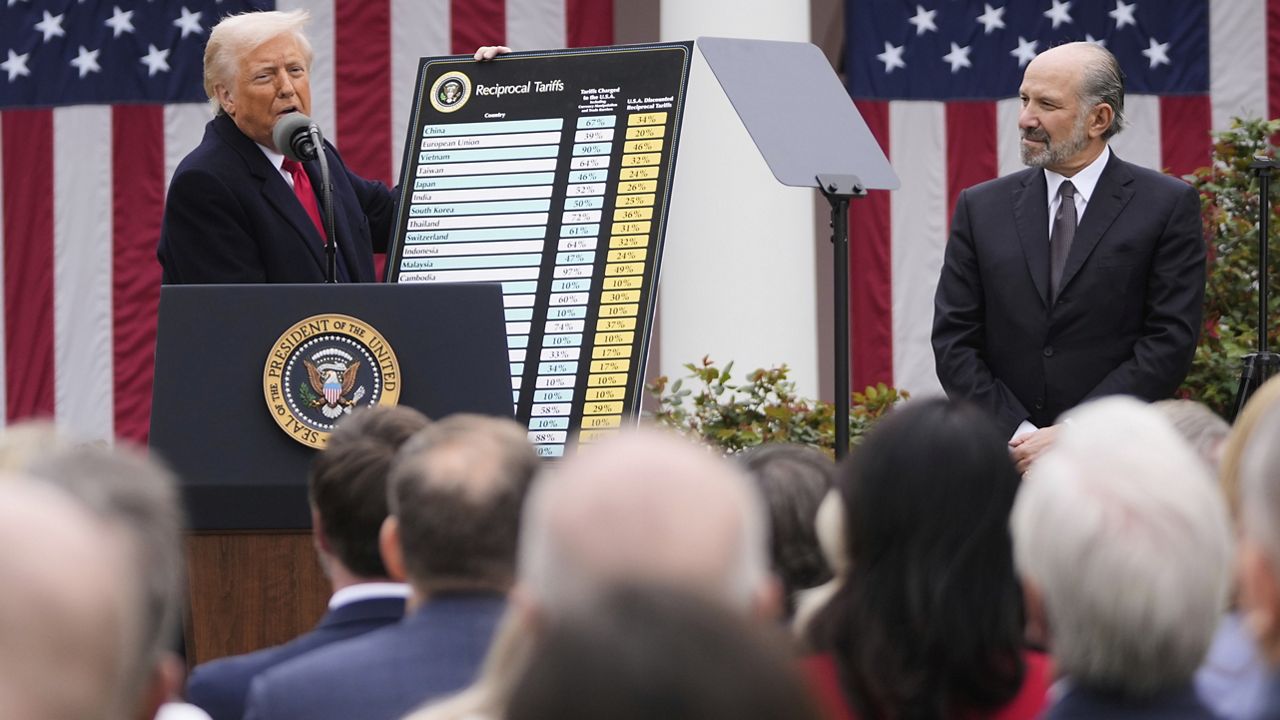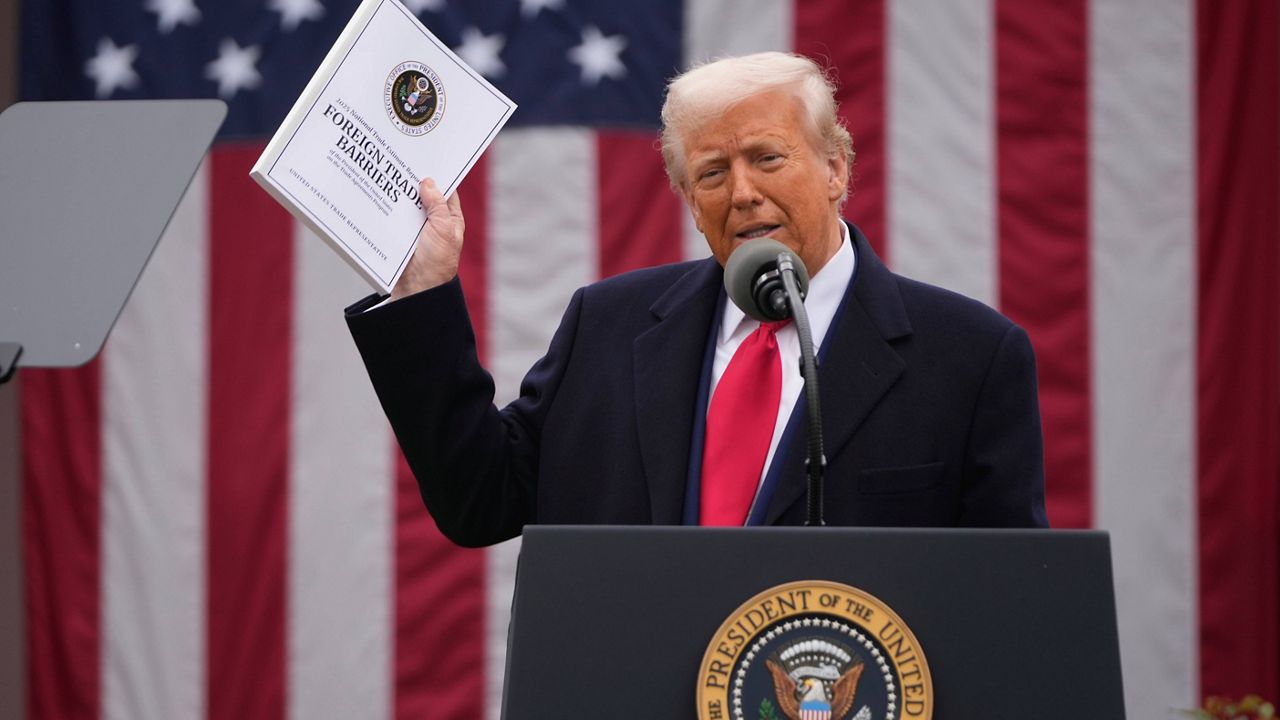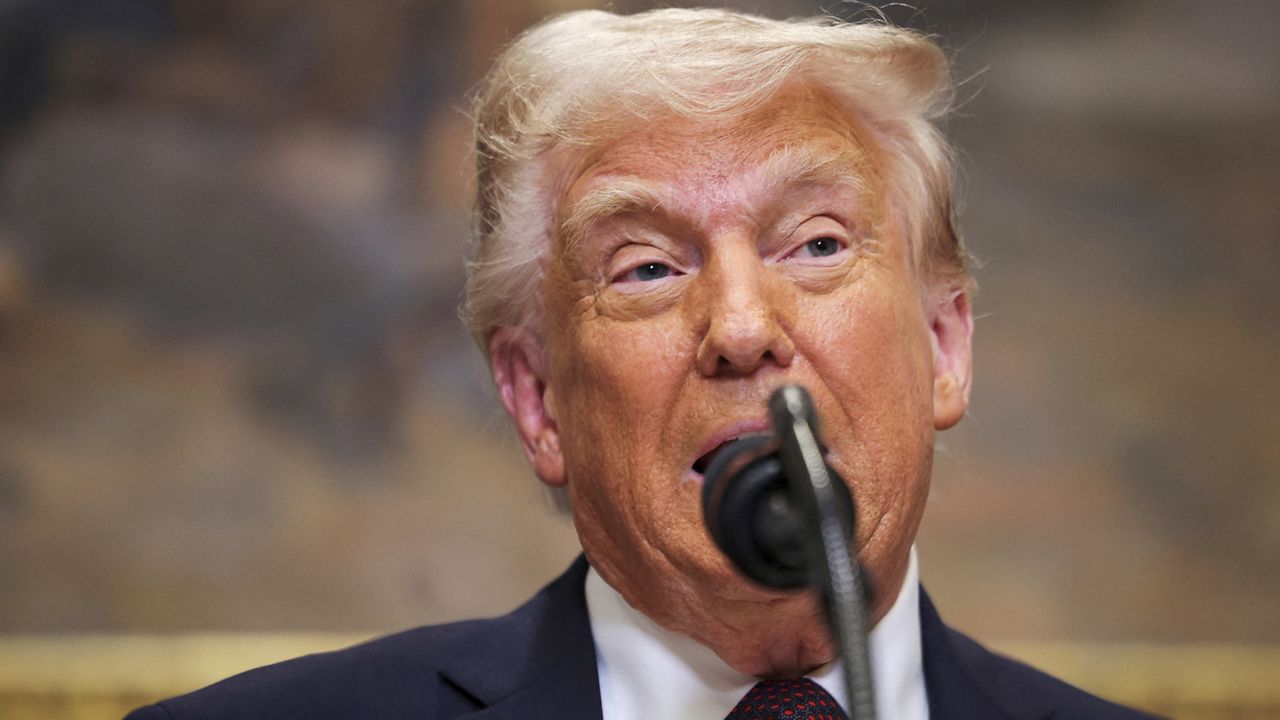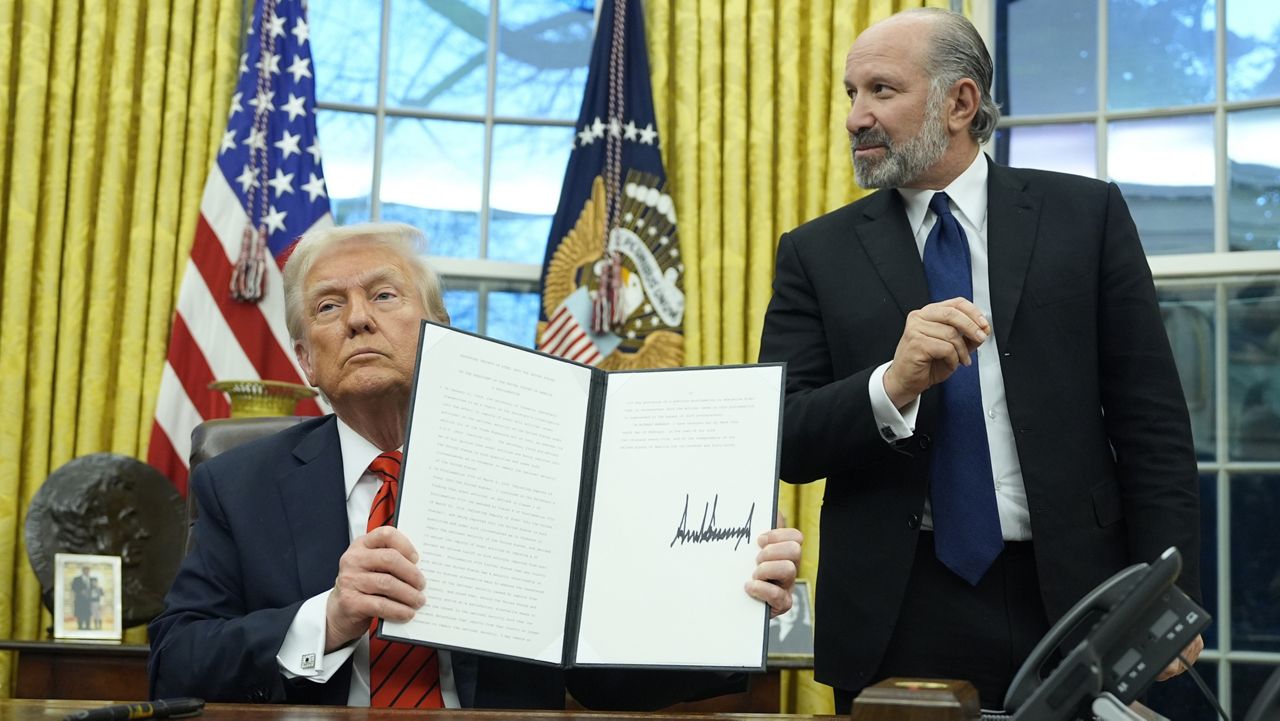WASHINGTON — The Senate passed a resolution Wednesday night that would thwart President Donald Trump’s ability to impose tariffs on Canada, delivering him a rare rebuke just hours after the president unveiled sweeping plans to clamp down on international trade.
The Senate resolution, passed by a 51-48 vote tally, would end Trump’s emergency declaration on fentanyl that underpins tariffs on Canada. Trump earlier Wednesday announced orders — his so-called “Liberation Day” — to impose import taxes on a slew of international trading partners, though Canadian imports for now were spared from new taxes.
The Senate’s legislation ultimately has little chance of passing the Republican-controlled House and being signed by Trump, but it showed the limits of Republican support for Trump’s vision of remaking the U.S. economy by restricting free trade. Many economists are warning that the plan could cause an economic contraction, and GOP senators are already watching with unease as Trump upends the United States’ relationship with the rest of the world.
In a post on Truth Social just before 1 a.m. Wednesday, Trump accused Republican Sens. Mitch McConnell and Rand Paul — both of Kentucky — Lisa Murkowski of Alaska and Susan Collins of Maine of being “unbelievably disloyal” to the Republican Party and suffering from “Trump Derangement Syndrome.” The four senators ultimately voted for the resolution.
“Mitch McConnell of Kentucky, Susan Collins of Maine, Lisa Murkowski of Alaska, and Rand Paul, also of Kentucky, will hopefully get on the Republican bandwagon, for a change, and fight the Democrats wild and flagrant push to not penalize Canada for the sale, into our Country, of large amounts of Fentanyl, by Tariffing the value of this horrible and deadly drug in order to make it more costly to distribute and buy,” Trump wrote in the post.
The president went on to call the resolution — which would proclaim an end to the national emergency Trump declared as the foundation for imposing some tariffs on Canada as an incentive to address fentanyl coming into the U.S. from the country — a “ploy” by Democrats to sow division in the party. He made the case that it would ultimately amount to nothing because the GOP-led House would never pass it and he would never sign it.
Paul is a co-sponsor of the resolution while McConnell, who has a notoriously frosty relationship with Trump, has argued against the president’s tariff agenda more broadly. Murkowski and Collins are known to occasionally stray from their party and have expressed in media interviews an openness to supporting the resolution.
“As I have always warned, tariffs are bad policy, and trade wars with our partners hurt working people most. Tariffs drive up the cost of goods and services. They are a tax on everyday working Americans," McConnell said in a statement after the vote. "Preserving the long-term prosperity of American industry and workers requires working with our allies, not against them."
In his post, Trump encouraged constituents in Kentucky, Alaska and Maine to contact their senators to urge them not to vote for the measure.
The resolution was led by Democratic Sens. Tim Kaine of Virginia, Amy Klobuchar of Minnesota and Mark Warner of Virginia.
After Trump's announcement, Rep. Gregory Meeks, the top Democrat on the House Foreign Affairs Committee, said he would also force a similar vote in the House on the tariffs.
The president had already imposed new fees on China as well as separately on steel and aluminum imports, been back and forth on duties with Canada and Mexico over immigration and fentanyl, and announced new tariffs on foreign-made cars that are set to take effect this week.
The feud over tariffs between Canada and the U.S. led Canadian Prime Minister Mark Carney last week to declare the “old relationship” between the two North American neighbors as “over.”
Democrats argued that Trump is using the tariffs to pay for tax cuts that would benefit the wealthy, but will make it more expensive to build homes, disrupt industries and raise prices on imported grocery products. Kaine pointed to aluminum imported from Canada that is used by businesses ranging from pie makers to shipbuilders.
“Today, Donald Trump takes a sledgehammer to the American economy and even to the American dream,” Senate Democratic leader Chuck Schumer said in a floor speech.
For their part, Republican leaders tried to hold their members in line against the tariff resolution by emphasizing that Trump was acting to address fentanyl trafficking and border security.
Majority Whip Sen. John Barrasso argued in a floor speech that former President Joe Biden had “also thrown open the northern border. The criminal cartels noticed and they took advantage.”
Paul, a Kentucky Republican who often supports libertarian economic views, also spoke in favor of the resolution, arguing that the president should not be given unilateral authority to impose taxes on imports.
“Every dollar collected in tariff revenue comes straight out of the pockets of American consumers,” he said. “Conservatives used to understand that tariffs are taxes on the American people. Conservatives used to be uniformly opposed to raising taxes because we wanted the private marketplace, the private individuals to keep more of their income.”









